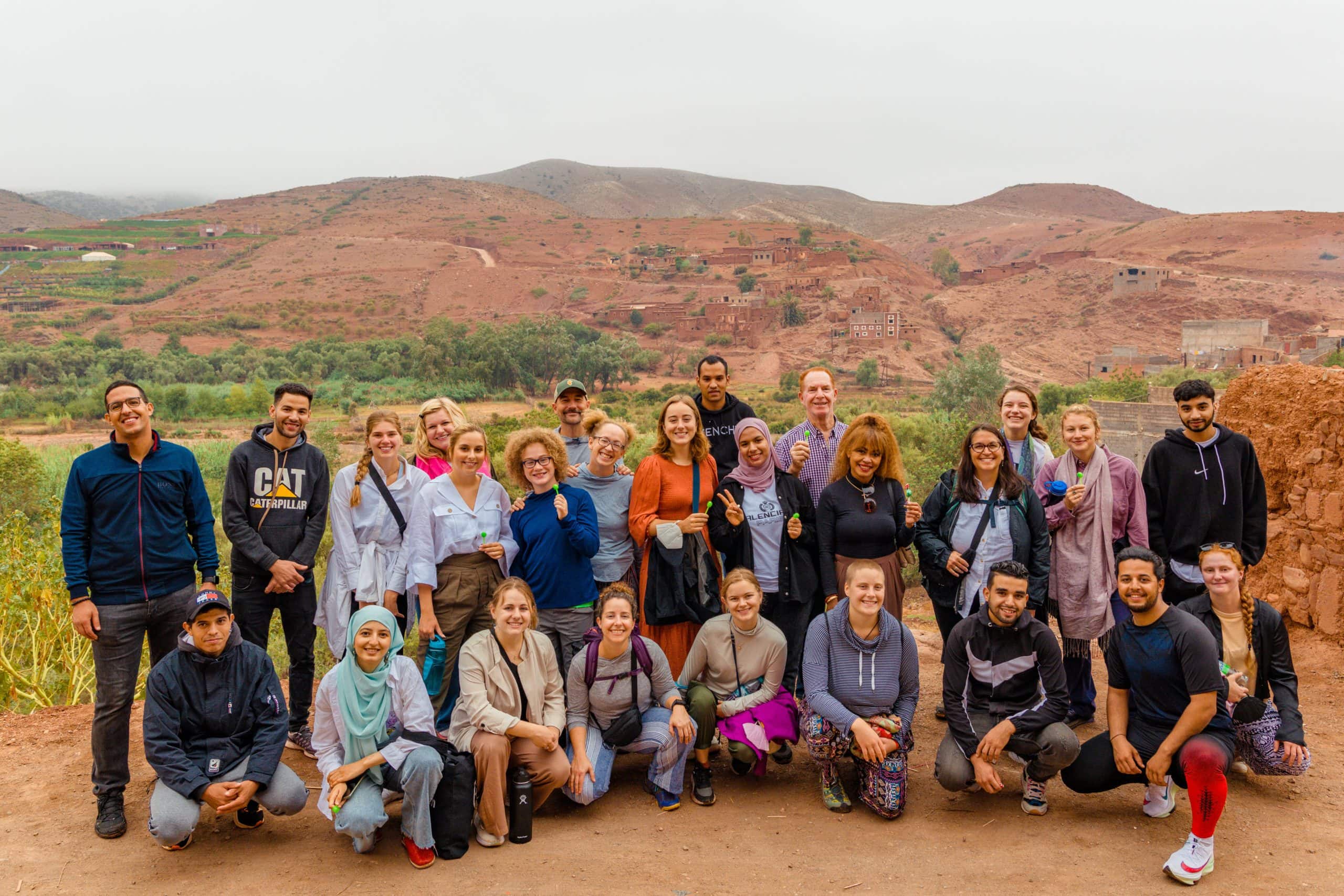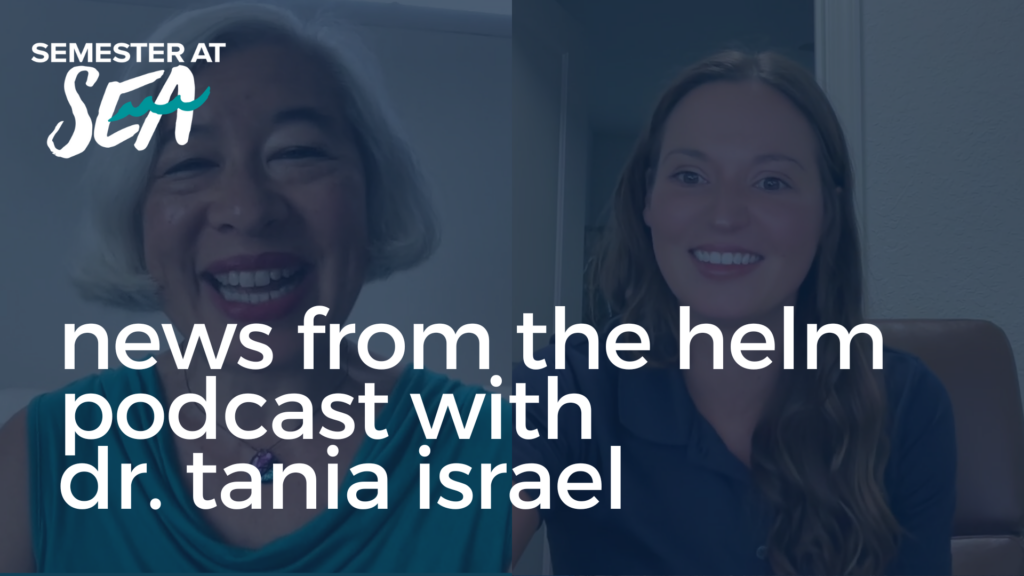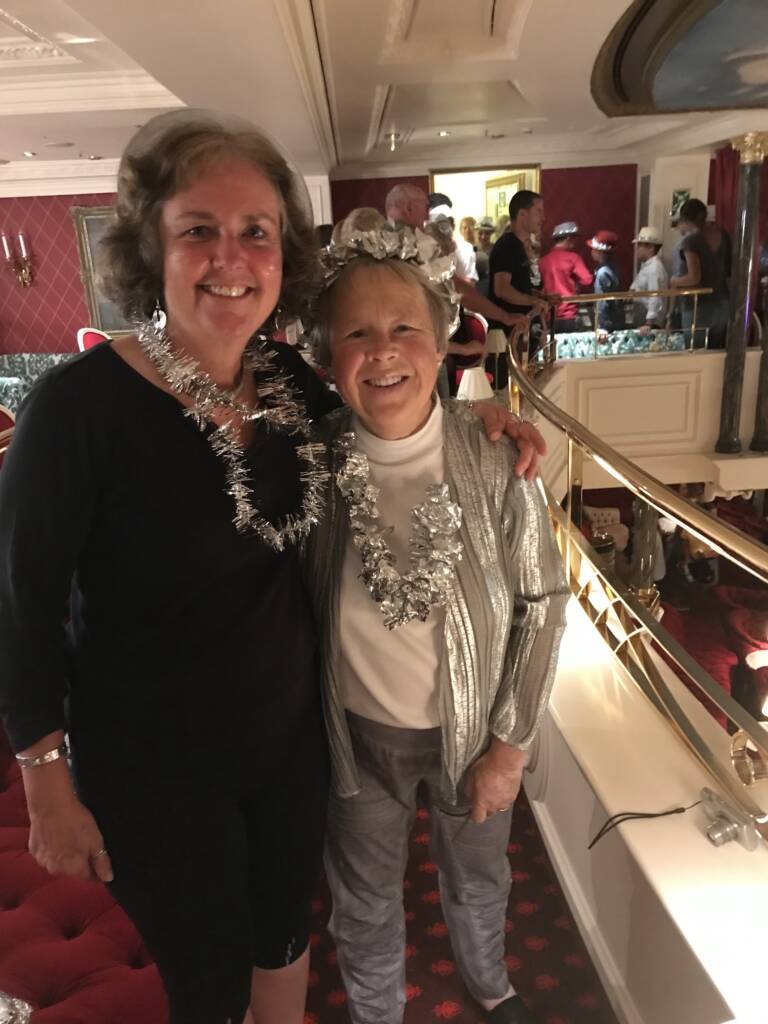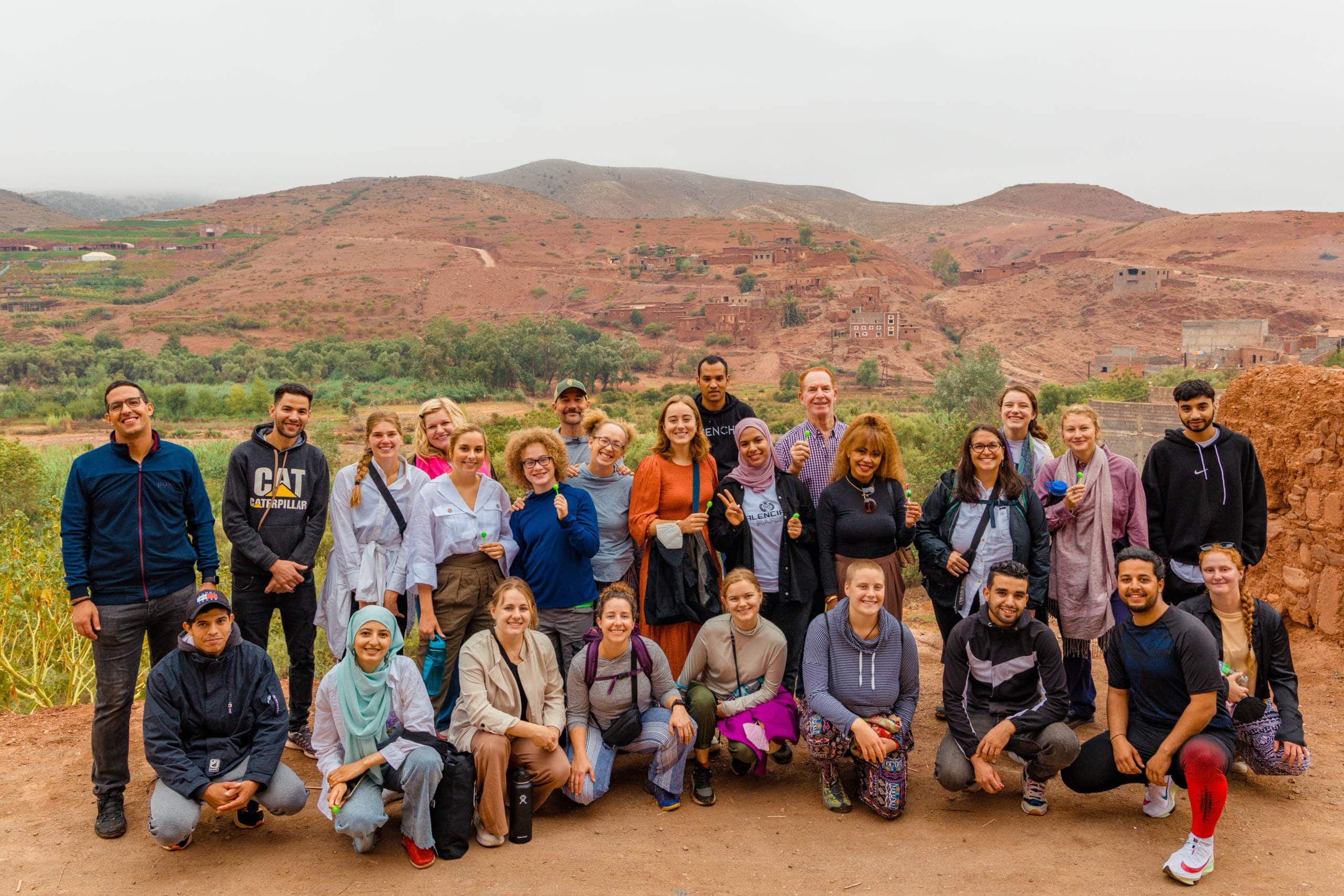
As students walked down the gangway in Morocco, our second port-of-call, there were mixed feelings. Some were ecstatic to set foot in an unfamiliar place, while others were anxious for the very same reason. However, a desire that almost everyone shared was that they wanted to be a conscious traveler and have an “authentic” Moroccan experience.
Some voyagers had the chance to get a taste of life in Morocco outside of the city on a village “homestay” field program called Go Local: Amazigh Village, myself among them. Due to COVID restrictions, our cohort was not able to spend the night in the homes of our host families, but we spent a significant amount of time with them during the days and evenings. After our program leaders divided our group into small “families,” they introduced us to our extended Moroccan siblings and parents, who we would spend the next several days with.
In the foothills of the Atlas Mountains, discover the incredible culture and traditions of Morocco’s indigenous people, the Amazigh (formerly known as Berber) people. Slow down into the rhythm of village life and get to know community members through discussion, cooking, and a gentle morning hike to better take in the views. On the final day, take a 10-minute camel ride, gazing upon the Atlas Mountains in the distance.
– Go Local: Amazigh Village Field Program Description
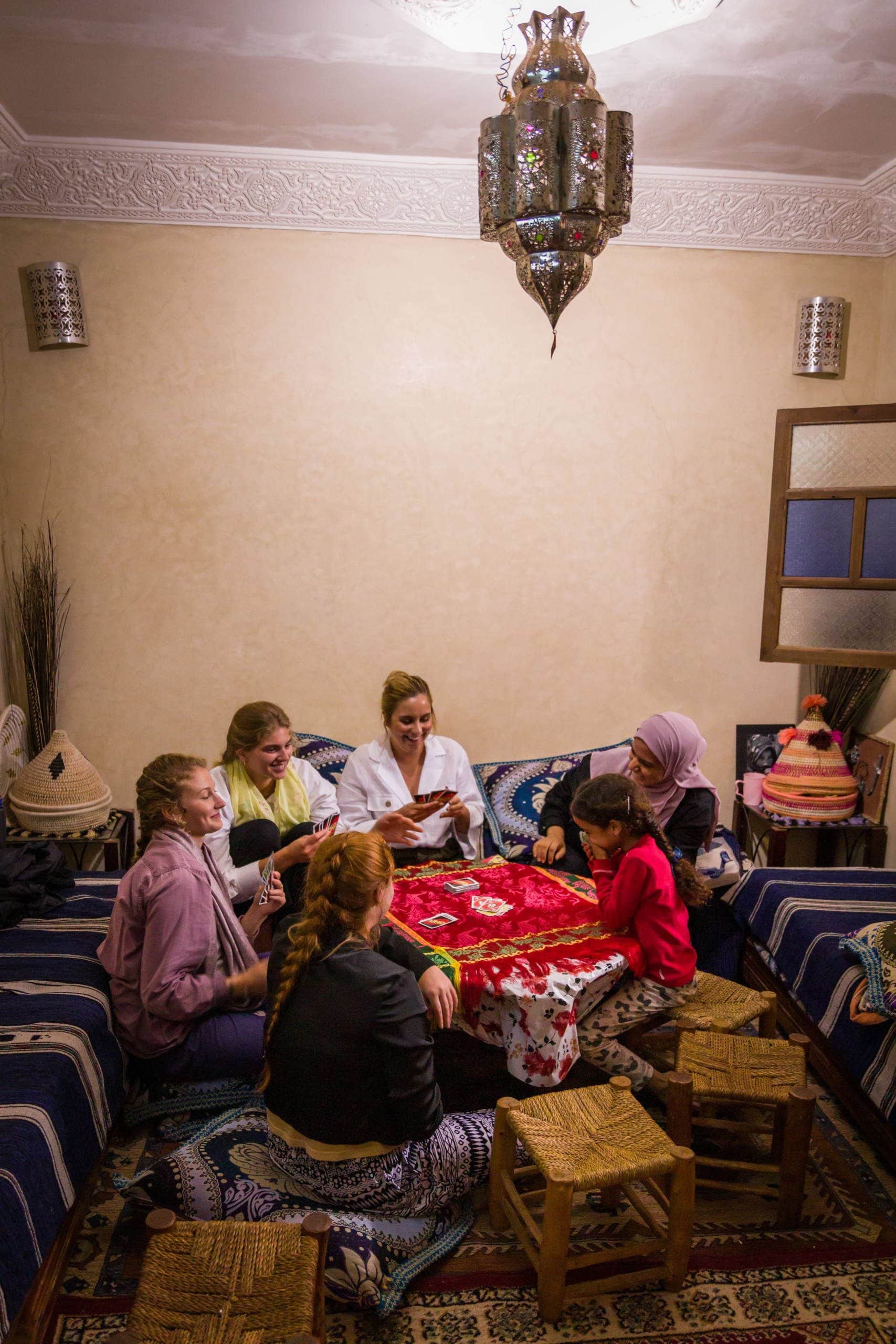
Upon arriving to the homes of our gracious hosts, it was obvious that many voyagers, felt a pressure to conform to the cultural norms of the village and to not accidentally offend anyone as we were challenged with language barriers and struggled to eat without the utensils that most of us were used to. I think some of us thought that our hosts would think critically of us if we made a mistake in these exchanges or unintentionally overlooked certain cultural nuances that we weren’t aware of. I realized that my definition of what it meant to be a “conscious traveler” was essentially to be as perfect as possible and give off the impression that I was exceptionally culturally competent all of the time. I suspect other Semester at Sea voyagers had a similar definition. But then our Moroccan program guide, Jaouad, reminded us of something very important: Cultural exchange goes both ways.
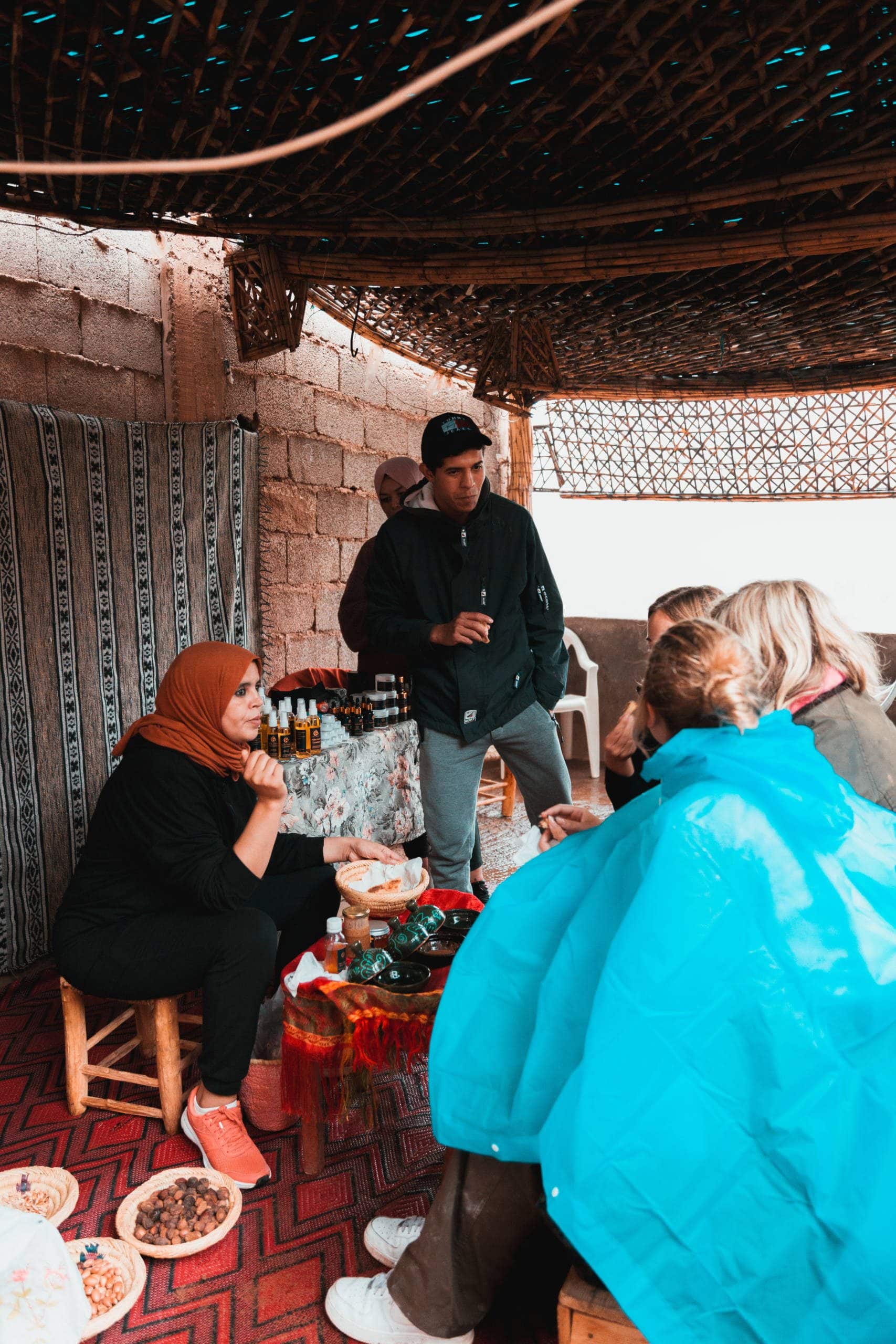
Often times as Semester at Sea voyagers, we try to be perfect travelers. We sometimes feel the urge to blend in and appear as if we know exactly what we’re doing no matter where we are, or that we know everything about a culture despite having never experienced it before. Ironically, this well intentioned, but disingenuous, charade is often performed in the same moments in which we are seeking “authentic” interactions with locals. Sometimes we can be so focused on our own behavior, wondering if it is culturally acceptable or not, that we completely miss the beauty of the vulnerable and real interactions happening right in front of us. We shouldn’t just be consuming culture, we should be sharing it as well. We don’t need to hide where we come from or who we are because we are in another country. In fact, our hosts didn’t want that either. In interactions like these, both parties want to experience something real.
The reality of my time sitting around the dinner table with my Moroccan host family was much less polished than what I originally wished for and yet far more enjoyable. At one point in our first meal together, my host sister, Selma, gave me a fork for my food because she noticed me struggling to eat with my right hand (as is customary in Moroccan culture). Even though neither Selma or my host mother spoke English, we all sat around the table and laughed at my inability to eat with any semblance of grace using my right hand and it was beautiful. In that moment, I felt like I really connected with my family and embodied a difference that existed between our cultures that was both educational and real. I didn’t have to be perfect, and my family didn’t expect me to be either. They wanted to get to know me just as much as I wanted to get to know them. These moments continued to happen, and eventually more and more of us started to let them.
In the end, none of us wanted to leave. There were tears and hugs all around and I feel confident saying that each of us left feeling like we had a family and a place to stay if our journeys brought us back to this amazing country. It turns out that being a conscious traveler isn’t the same thing as being perfect. Being a conscious traveler means coming as you are, being willing to make mistakes, and having a desire to learn.
